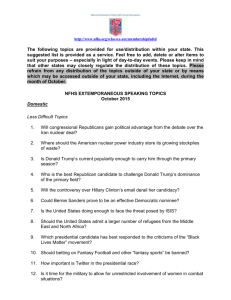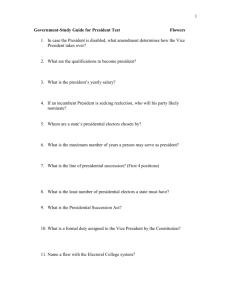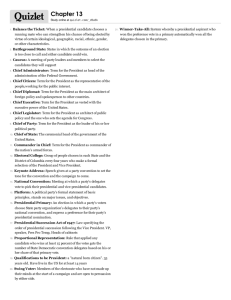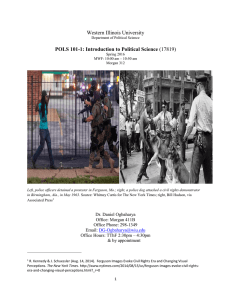Chapter 20 Fill in the Blanks
advertisement
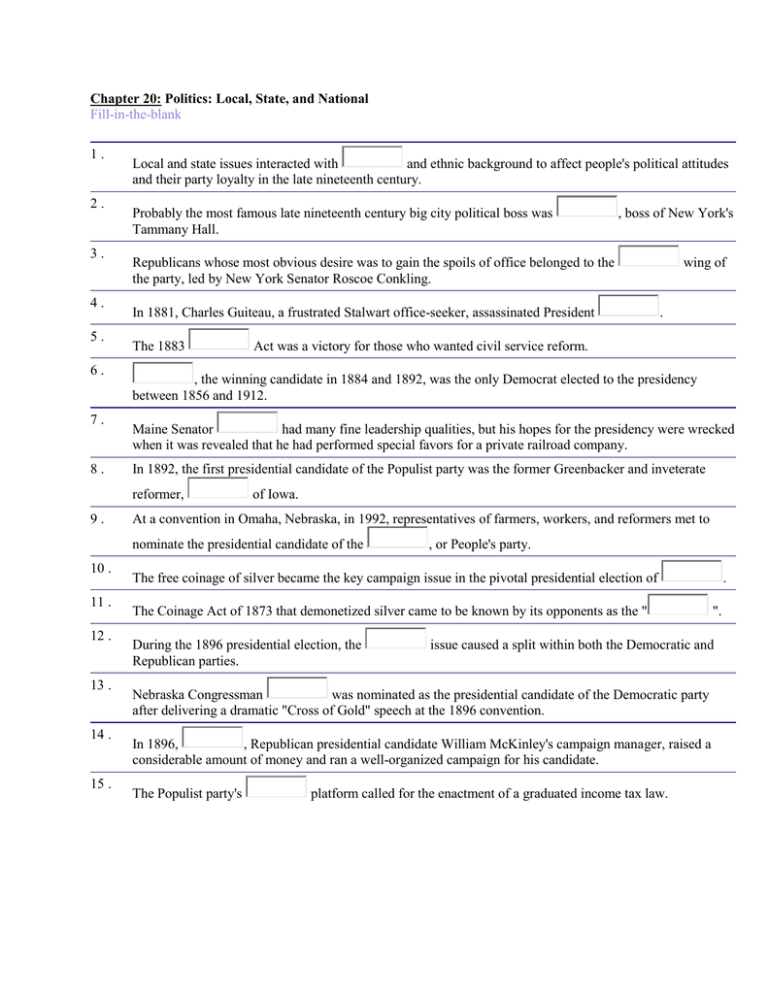
Chapter 20: Politics: Local, State, and National Fill-in-the-blank 1. 2. 3. 4. 5. 6. 7. 8. Local and state issues interacted with and ethnic background to affect people's political attitudes and their party loyalty in the late nineteenth century. Probably the most famous late nineteenth century big city political boss was Tammany Hall. Republicans whose most obvious desire was to gain the spoils of office belonged to the the party, led by New York Senator Roscoe Conkling. In 1881, Charles Guiteau, a frustrated Stalwart office-seeker, assassinated President The 1883 11 . 12 . 13 . 14 . 15 . . Act was a victory for those who wanted civil service reform. Maine Senator had many fine leadership qualities, but his hopes for the presidency were wrecked when it was revealed that he had performed special favors for a private railroad company. In 1892, the first presidential candidate of the Populist party was the former Greenbacker and inveterate of Iowa. At a convention in Omaha, Nebraska, in 1992, representatives of farmers, workers, and reformers met to nominate the presidential candidate of the 10 . wing of , the winning candidate in 1884 and 1892, was the only Democrat elected to the presidency between 1856 and 1912. reformer, 9. , boss of New York's , or People's party. The free coinage of silver became the key campaign issue in the pivotal presidential election of The Coinage Act of 1873 that demonetized silver came to be known by its opponents as the " During the 1896 presidential election, the Republican parties. ". issue caused a split within both the Democratic and Nebraska Congressman was nominated as the presidential candidate of the Democratic party after delivering a dramatic "Cross of Gold" speech at the 1896 convention. In 1896, , Republican presidential candidate William McKinley's campaign manager, raised a considerable amount of money and ran a well-organized campaign for his candidate. The Populist party's . platform called for the enactment of a graduated income tax law.
